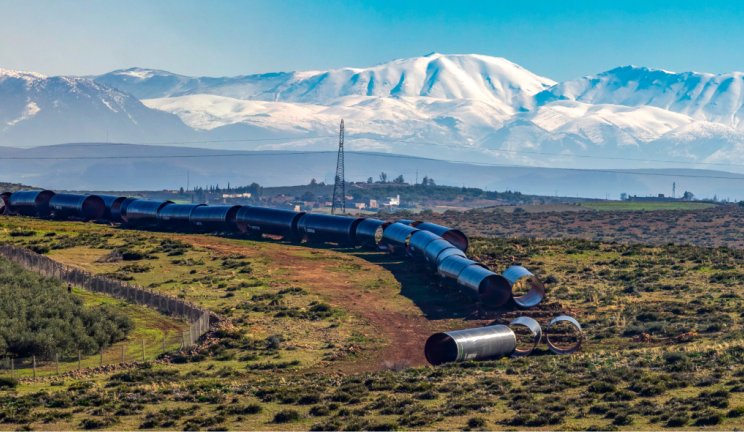Marina Lévy - Companies at the heart of ocean conservation issues
Marina Lévy, oceanographer, research director at the CNRS and ocean advisor to the president of the French National Research Institute for Sustainable Development (IRD), examines the state of the oceans in 2025 and the effects of their disruption. From awareness to decision-making, she questions the role of public decision-makers, businesses and citizens in protecting these natural spaces.
The ocean covers 70% of the globe's surface and regulates our planet's climate. Its degradation, accelerated by human activity, directly threatens our societies. Faced with this urgent situation, each of us can play a role in the transition to an economy that is more respectful of marine ecosystems – starting with companies.
"The ocean is in a bad way. The cause is climate change, which is affecting its physical and biological state as well as marine ecosystems, but also the over-exploitation of resources: demand for aquatic products has doubled since the 1970s, leading to the over-fishing of almost a third of fish stocks. Added to this is pollution, particularly from plastic, the global production of which is set to triple by 2040. The ocean has become the receptacle for all our excesses.
The impact of this human pressure is known and quantified. Since 1901, the average sea level has risen by 23 cm. Marine heatwaves are increasing in frequency and intensity, with temperature anomalies exceeding seasonal averages for several weeks. Mangroves and seagrass beds are deteriorating rapidly, with losses of between 25% and 50% depending on the species. As for coral reefs, 95% of them could disappear by 2100. The deterioration of the ocean also affects human societies. In coastal areas, the rise in sea level, combined with the intensification of cyclones fuelled by ocean warming, will lead to major human and material damage in the future. In a pessimistic scenario, an overflow event that used to be centennial could occur once a year by 2100. Faced with these threats, protective structures are essential, but they won't be enough: we need to rethink territorial planning as a whole.
At the same time, urgent action is needed to reduce human pressures on marine ecosystems. Strengthening protected marine areas, strictly applying climate-sensitive fishing quotas, banning unsustainable fishing techniques and combating unreported and unregulated fishing can help us preserve resources. Maritime transport and port infrastructures must be decarbonised, and tourism regulated. Finally, the renaturation of coastal ecosystems destroyed by man also offers a promising avenue, provided it is supported by scientific expertise."
In reality, the challenge lies less in identifying solutions than in raising awareness.
Marina Lévy, oceanographer, research director at the CNRS and ocean advisor to the president of the French National Research Institute for Sustainable Development (IRD)
"Raise awareness. This is precisely the ambition of the Starfish barometer, launched to coincide with the third United Nations Ocean Conference (UNOC 3) in June 2025. Developed by a team of scientists, Starfish provides for the first time a clear and accessible summary of the state of health of the ocean, human pressures and their impact on society. The aim is to raise public awareness and provide companies with a framework they can use to assess the impact of their projects and activities on the ocean and its ecosystems.
Because beyond individuals, companies also have a major role to play, if not the most important. They have a responsiveness and capacity for action that political decision-makers do not have, as they are often forced to think in the shorter term. Companies, on the other hand, take a long-term view of their choices, which can encourage them to invest in more sustainable methods, especially as they are more costly in the short term. This is also what makes them the players most capable of making a difference. We are at a turning point in the history of humanity. We now have sufficiently accurate scientific projections and historical data to be aware of the trajectory we are on.
Now is the time to reverse the trend, not by waiting in vain for a major decisive action, but by the sum total of millions of micro actions that will move us forward in the transition to a more sustainable world. The aim is to support this movement, to create this collective drive that is transforming our habits. Sometimes you feel like a drop in the ocean, unable to change anything. But it's precisely by adding up these drops of water that we'll succeed!".
Subscribe
Stay tuned : receive our newsletter
Every quarter, discover new articles, exclusive features and experts' views delivered straight to your inbox.
Most viewed
Vous aimerez aussi

Access to water in Africa: persistent challenges despite major progress
When looking at the situation of safely managed water supplies in Africa, the glass could be seen as half full, rather than…

Building with and for nature
Whether creating barrages, stripping away topsoil, cutting down trees or digging channels, humans have spent thousands of…

Bridging the construction gender gap: paving the way to a career in industry for women in Colombia
In 2025, the Ruta 40 consortium led by VINCI Construction Grands Projets completed work on widening and upgrading the Bogotá…

